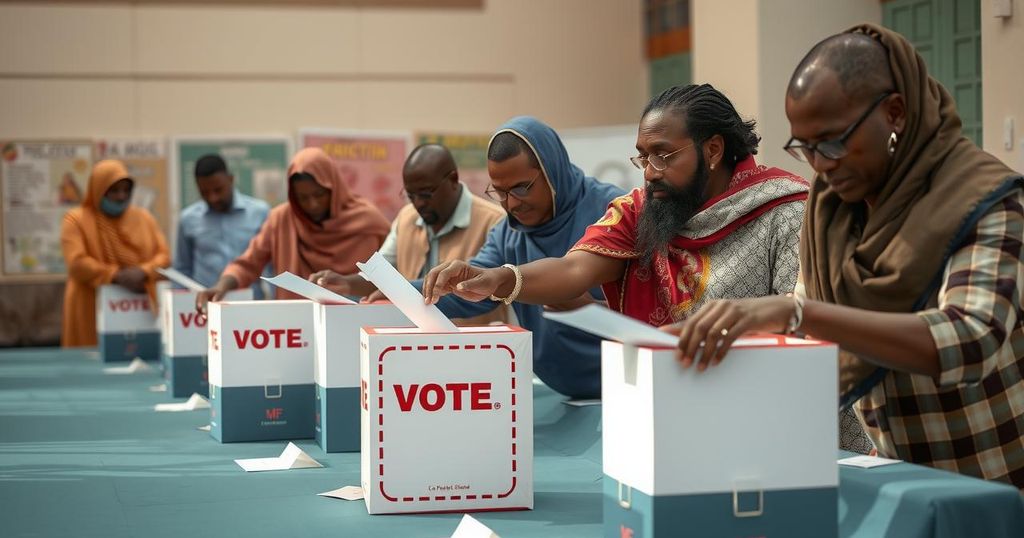Chad Holds General Election Amid Opposition Boycott and Low Turnout
Chad recently conducted a general election to end military rule; however, low turnout reflected widespread voter apathy, largely due to opposition calls for a boycott. President Mahamat Idriss Deby Itno, facing claims of predetermined results, urged increased participation as observers noted significant ballots among military and nomadic voters. The election occurs against a backdrop of security challenges and ongoing democratic transition efforts.
Chad held a general election on Sunday, considered by the government as a significant move towards establishing democratic governance following three years of military rule. However, voter turnout was markedly low, with preliminary figures indicating about 38 percent participation, attributed in part to an opposition-led boycott urging citizens to refrain from voting. Opposition leaders, including Succes Masra of the Transformers party, asserted that the election’s outcome had already been predetermined, leading many voters to dismiss the significance of their participation.
Despite calls for boycotting the election, President Mahamat Idriss Deby Itno encouraged citizens to vote, referring to the election as a “historic day.” Election officials reported higher participation rates among military personnel and nomadic communities, citing logistical reasons for advance voting. Residents expressed pessimism about the electoral process, with individuals like Herve Natouingan and Patrice Lumumba Deoumoundou voicing concerns about the perceived lack of real democratic choice.
Polling stations remained open until 6:00 PM, monitored by international observers to ensure a degree of integrity. Meanwhile, the opposition Democratic Party of the Chadian People reported incidents of ballot mismanagement, demanding vigilance against perceived electoral fraud. This election takes place amidst ongoing regional challenges, including security threats from Boko Haram and tensions related to Chad’s foreign relations, underscoring the complex political landscape as the nation transitions from military control to civilian governance.
Chad’s recent election comes after the military’s establishment of power following the death of longtime leader Idriss Deby in 2021. The current president, Mahamat Idriss Deby Itno, has since been at the helm, with this election deemed critical for legitimizing his leadership. Opposition factions have consistently voiced discontent with the electoral process, alleging that the political environment is manipulated and lacking in genuine democratic principles. Coupled with underlying social issues and security threats, the circumstances surrounding this election reflect broader struggles for stability and governance in Chad.
The general election in Chad reveals complex dynamics of political power and public sentiment in the wake of military rule. While the government promotes the election as a milestone towards democracy, low voter turnout and opposition boycotts raise questions about the legitimacy of the process. As Chad navigates its path to democratic governance amidst external pressures and internal discontent, the effectiveness of these elections remains in doubt, and the people’s aspirations for meaningful change appear unfulfilled.
Original Source: www.communitynewspapergroup.com




Post Comment